Business for the Next Century
Marking 100 years of leading education and research, URI’s College of Business is focused on the future. Emphasizing innovation and interdisciplinary programs, the college is training leaders to succeed in a changing world and tackle tomorrow’s challenges.
By Lauren Rebecca Thacker
In 1927, Andrew J. Newman, dean of the then-4-year-old College of Business at URI, took to the pages of the student newspaper to explain the college’s shift from a focus on training to a more academic, big-ideas approach. “The first need of youth in preparation for a business career,” he said, “is education of a broad and scholarly type.” He added that “character” for those aiming to succeed in the business world was essential.
Today, Sean Edmund Rogers, dean and Alfred J. Verrecchia–Hasbro Inc. Leadership Chair, uses different language to describe the college’s educational approach, but the spirit very much remains.
“We’re educating students and future business leaders who will change the world,” says Rogers, “leaders with the knowledge to understand the greatest challenges and opportunities facing business and society, the skills to bring about positive change within organizations and in their communities, and the courage to make the right decisions.”
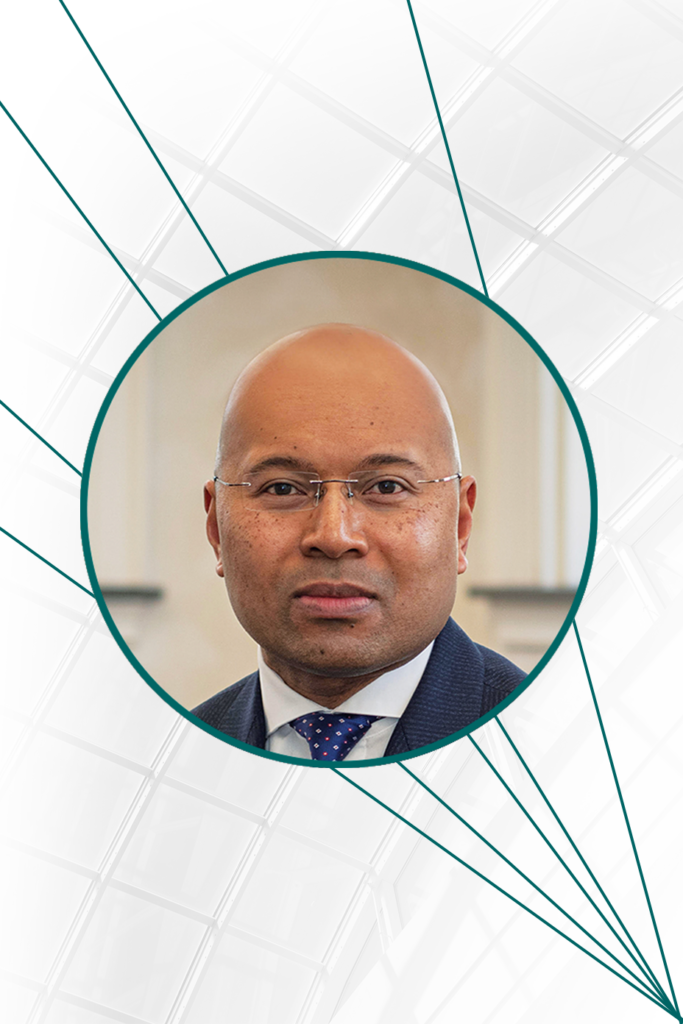
“We’re educating students and future business leaders who will change the world.”Dean Sean Edmund Rogers
The College of Business provides students with a framework for making decisions and driving innovation across a variety of industries in a constantly evolving business world. Things change in unpredictable ways: Who could have anticipated the abrupt transition to remote work in 2020? Business students at URI learn to put their knowledge to work and to become leaders in the ever-changing business world in Rhode Island and around the globe.
It Starts with Ideas
With 80 faculty members who are experts in areas from supply chain management and accounting to finance and marketing, the college’s academic strengths are, Rogers says, “top-notch.”
“I came to URI because I saw something very special happening here and I saw a unique opportunity to be at the state’s flagship business school,” says Rogers, who joined the URI faculty in 2018 and became dean in June of this year. “It was one of the best career decisions I ever made.”
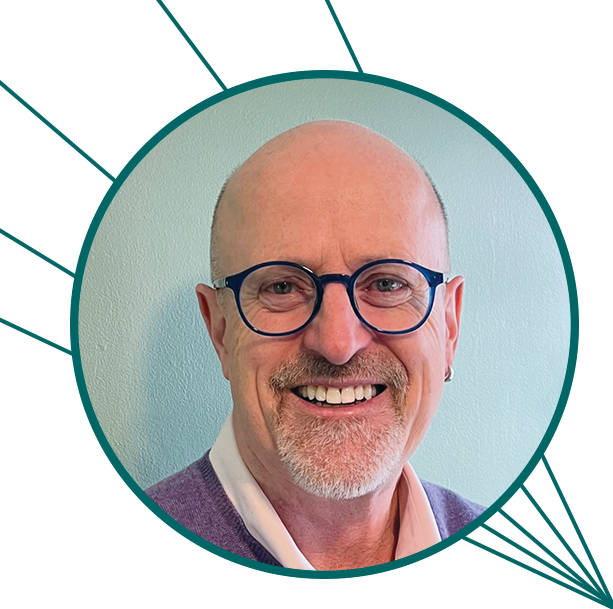
Douglas Creed
Douglas Creed, professor of management, and Seray Ergene, assistant professor of management and URI Coastal Institute senior fellow, are making strong contributions to that academic strength, both engaged in work that demonstrates the real-world implications of business research.
Creed has been known for decades for his work on marginalized groups and individuals engaged in institutional change efforts. He came to URI in 2004 after academic appointments around the world, with stops in the banking industry and at Yale Divinity School. His groundbreaking research on LGBT workers and efforts to secure benefits for domestic partners shed light on a pressing civil rights issue in the ’90s; his current work on cities and systematic racism does the same today.
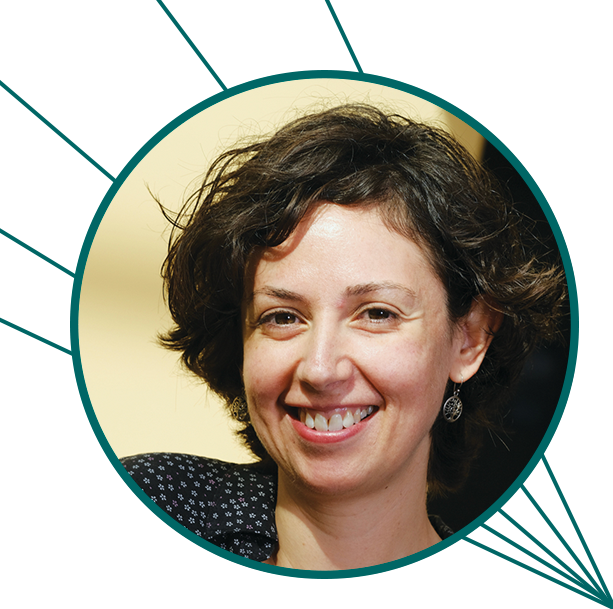
Seray Ergene
Ergene joined the faculty in 2018 after completing her doctorate in management with interdisciplinary training in feminist studies, political theory, sociology, and anthropology. Her research on sustainability and environmental justice helps her guide students to think about current social and ecological concerns and is relevant to students entering a wide range of industries.
Building Blocks
Learning from expert faculty and collaborating with classmates, students learn the skills they need to make their way after graduation, whatever path they choose. Al Verrecchia ’67, M.B.A. ’72, Hon. ’04, former longtime CEO of the global conglomerate Hasbro, which is headquartered in Rhode Island, says that business education is essential for success, whether a person wants to run a multinational toy company, open a pizza shop, or manage a newspaper. You might be the most innovative chef or incisive writer, but beyond those talents, leaders must understand matters such as how to manage inventory, navigate supply chain crises, run payroll, and build community relationships.
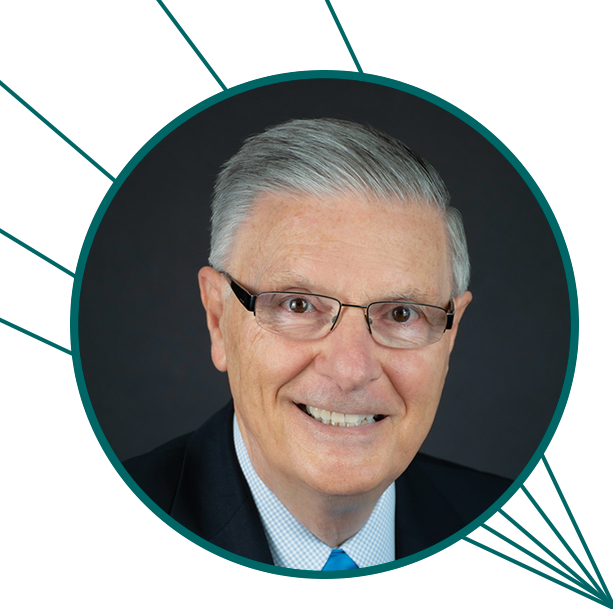
M.B.A. ’72, Hon. ’04
Former CEO, Hasbro
“The skills taught at the College of Business are building blocks. Without that training and development, people are going to struggle,” Verrecchia says.
Undergraduate and graduate students alike receive an interdisciplinary education that emphasizes experiential learning and entrepreneurial thinking. Critical thinking and problem-solving are embedded in the curriculum.
Challenging coursework can lead to intellectual growth when students least expect it. Grace Legere ’24 took a class on business law with John Dunn, a lawyer and associate professor. The course had a reputation for being challenging and she was intimidated. But Legere, a marketing major with a minor in criminal law, kept an open mind.
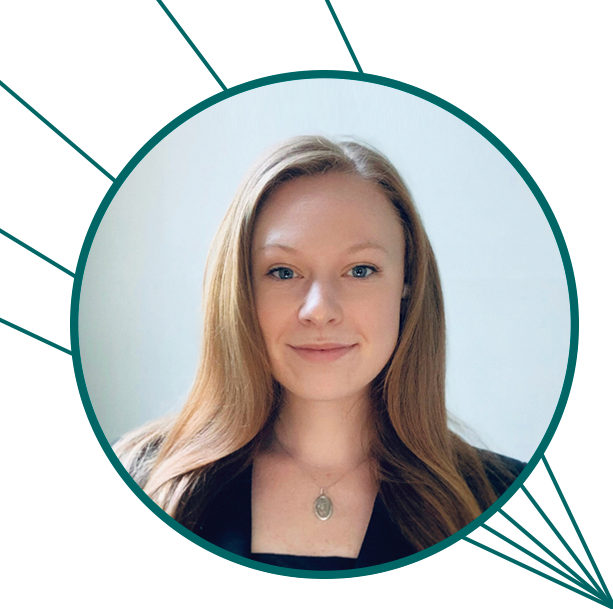
“I went into it with a positive attitude, and it turned out I loved that class. It’s a tough subject, but Professor Dunn didn’t overcomplicate things,” she says.
Now in her senior year, Legere serves as the president of the Women in Business club. The faculty advisor is Ann-Marie Sacco, associate teaching professor of accounting.
“The club fosters a more equal corporate culture,” Legere explains. “Our members work together to find our strengths. Professor Sacco has taught me so much about leadership. I couldn’t have asked for a better mentor.”
Members of the club put their skills in marketing, communication, networking, and event planning to work at an annual fundraiser, A Day for Ali, which is dedicated to the memory of Sacco’s daughter and raises money for Boston Children’s Hospital.
“We’re very proud to be associated with this event,” Legere says. “It’s important that we can put what we are learning to use for something so meaningful.”
Verrecchia’s observation that business education has broad applications holds true for Rachel Afua Ansong, M.B.A. ’22, Ph.D. ’22 (English literature/creative writing), and M.B.A. student Mike Moliniski ’19. Ansong enrolled in the part-time M.B.A. program to build her knowledge of marketing and advertising to complement her literary expertise.
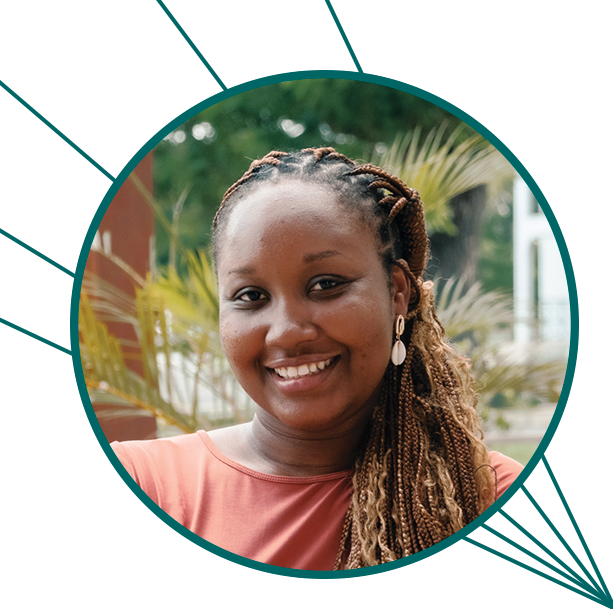
M.B.A. ’22, Ph.D. ’22
After graduating, Ansong created a contest for Ghanian poets—the Adinkra Poetry Prize—and founded a line of tote bags made in Accra, Ghana. The sales from the tote bags support the prize for the poetry contest.
“I use my business skills to raise funds and help spread the power of African poetry—part of my mission as a Ghanaian-American poet and scholar,” says Ansong, who is now back at URI as an assistant professor of Africana studies.
Molinski earned his undergraduate degree in chemical engineering from URI and went on to work for AUDIANCE, a medical device battery startup. He was confident in the science, but then what?
“What I’m learning in the M.B.A. program gives me a solid foundation for making business decisions as well as engineering decisions,” he says.
Innovative and Interdisciplinary
We want Rhode Islanders to know how impactful the College of Business is,” Rogers says. “We educate nearly 3,000 students a year and really leverage all of URI’s strengths.”
The College of Business joined forces with the Graduate School of Oceanography to create the country’s first combined master’s degree in business and oceanography. URI is the first school in the country to offer a professional master’s in supply chain management and applied analytics and is rare among business schools in offering a business degree focused on textiles and fashion merchandising. Undergraduate and graduate students can pursue interdisciplinary degrees that support a range of interests.
One interdisciplinary initiative is Hacking4Oceans, a course in which groups of students work with outside sponsors to develop solutions to ocean-related problems. Molinski enrolled in the class and was paired with another M.B.A. student and two undergraduates.
The group set out to address the problem of ghost gear: abandoned, lost, or discarded fishing gear left in the ocean that traps and harms marine life and is illegal to remove without the authorization of the state’s Department of Environmental Management. The students developed a recommendation: Establish a permanent fund to underwrite official cleanup events during which the state allows ghost gear removal and disposal.

“The M.B.A. has given me a new set of glasses to put on when I’m solving problems.”Mike Molinski ’19
Molinski came to the problem equipped with his engineering background and the business knowledge he is gaining in the M.B.A. program. Both sets of knowledge provided important perspectives.
“I look at it as two sets of glasses that allow you to see the world differently. The M.B.A. has given me a new set of glasses to put on when I’m solving problems,” Molinski says. “Sometimes things may work from an engineering standpoint but not from a business standpoint, or vice versa. Now I can have a clear picture of both.”
Corporations with a Conscience
Greg Ogiba ’05, president of mike & mike’s—a Canada-based importer and distributor of produce and healthy foods—was looking for a niche. In agribusiness, he found that niche.
As a student, Ogiba studied international business and Spanish, which led to a stint at a Spanish agricultural company.
“It really opened my eyes to how big the global food industry is,” he says. “Now, I’m proud to play a role in helping to feed the world’s population by delivering healthy and sustainable foods.”
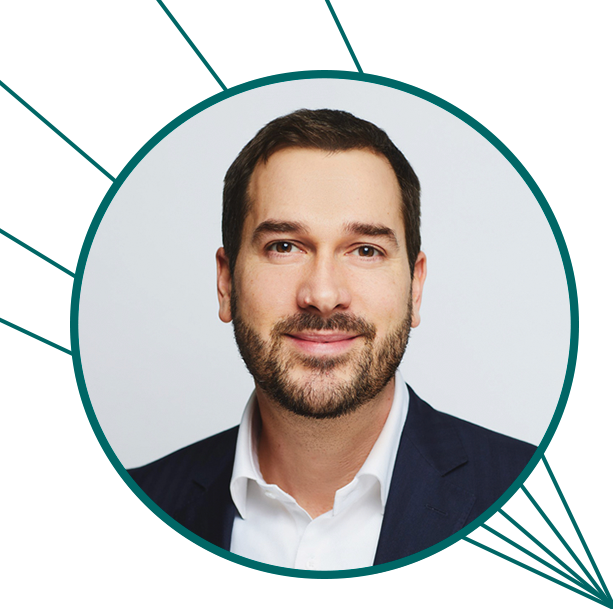
President, mike & mike’s
At mike & mike’s, Ogiba finds himself surrounded by people who share his pride. The company provides value for its consumers, and, he says, strives to create positive relationships with all stakeholders.
“We represent the growers and farmworkers who put so much effort and skill into their work, and I take it seriously that we’re the custodians of their products,” Ogiba says. He adds, “We all have to pay our bills. That’s an aspect of working. But another is that you can be part of an industry that is healthy, in more ways than one. And that’s pretty exciting.”
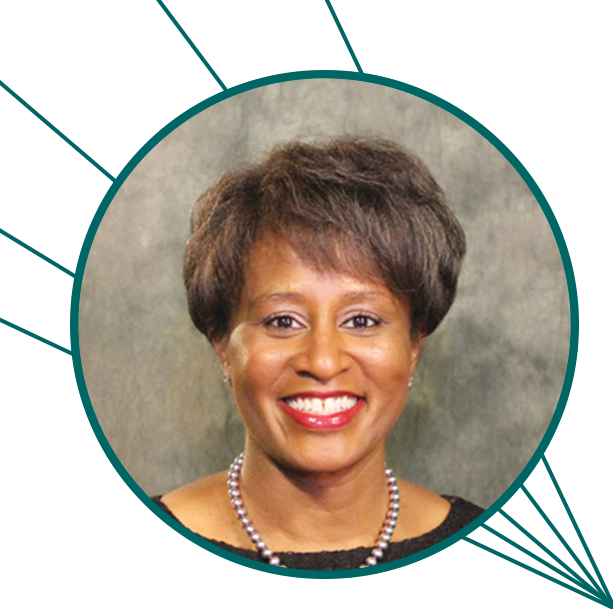
President, Fry’s Food Stores
Also in the food business—and the relationship-building business—is Monica Garnes ’94. As president of Arizona’s Fry’s Food Stores—a division of grocery giant Kroger Family of Companies, which ranks as one of the world’s largest retailers—she has made a career out of seeing connections that others might miss, whether forging partnerships with local farms or taking a hands-on approach to hunger relief. Even in her leadership role, she considers herself part of a team, perhaps no surprise for the former URI student-athlete who was—and remains—one of the top scorers in URI women’s basketball history.
In short, she sees how her work builds community.
“When I think of how grocery stores are at the center of communities, I think about how we can give people a sense of connection to each other,” she says.
The Future of Business Education
Rogers says, “A lot of institutions of higher education are out of reach for students. At the College of Business, we carefully and purposefully make sure that we are reaching into every corner of the state of Rhode Island.”
In-state tuition is one aspect of ensuring that the College of Business is accessible for a wide range of Rhode Islanders. Other aspects include robust admission outreach in high schools across the state and the University’s Talent Development program, which supports admission for Rhode Island high school graduates with college potential who come from historically disadvantaged backgrounds. Studying business is a popular path for Talent Development scholars, Rogers says.
“A URI business education is a value-add that improves students’ opportunities and creates economic mobility.”Dean Sean Edmund Rogers
“When I talk to prominent College of Business alums and ask them to describe the college, they often use the business term ‘value-add,’” says Rogers. “It’s used to describe a process that makes something substantially better. A URI business education is a value-add that improves students’ opportunities and creates economic mobility. That’s why it’s incredibly important that our school is accessible for all Rhode Islanders.”
Creed and Ergene want to make sure their students are informed about current trends in the business world while also encouraging them to consider new ideas or possibilities.
In one of her courses, Ergene asks students to analyze an industry that impacts climate change. Recently a group of students focused on the lithium mining industry, which produces lithium for the rechargeable batteries used in electric vehicles and solar panels, among other things. Most of the students, she says, went into the project feeling positive about the lithium mining industry’s contribution to reducing carbon emissions. But as they conducted their research, the students realized that the industry perpetuates environmental injustice in historically marginalized areas where lithium is mined.
Ergene says, “I emphasize that strategic management is all about decision-making. There is no right or wrong answer, but decision-making has consequences for all stakeholders—not just shareholders. In my classes, I encourage students to think critically about the concerns and interests of diverse stakeholders, such as workers and farmers in supply chains, as well as consequences of business activities on the natural environment.”
Likewise, Creed encourages his students to consider the depth and breadth of challenges we face. His research, he says, has always been a bit out of the mainstream in the business world. But his focus on challenging institutionalized beliefs and considering marginalized perspectives is vital.
“A lot of students may think that they don’t have a voice or that certain aspects of the business world are unchangeable. But my research shows them that change has happened,” he says.
Creed has high hopes for what business education can provide students.
“I want students to be realistic about the challenges we face. Certainly, some of them are so grave that looking them in the face can be paralyzing,” he says. “But I want students to be sensitive and aware of the world around them and to feel they can have some positive effect. History is being written and they can write it.”
Editor’s note: This story includes contributions from stories by Nicole Maranhas and Marybeth Reilly-McGreen.
Photos: Nora Lewis; Courtesy URI College of Business, Grace Legere, Rachel Ansong, Mike Molinski, Greg Ogiba, Monica Garnes, Sean Rogers; Artiom Vallat on Unsplash
The Ram Fund
Expanding the scope of business education is important. But the basic building blocks are important, too. Students in the Ram Fund class learn about two of those building blocks—finance and investment—by managing real money.
URI’s student-run equity fund is the ultimate hands-on training ground; students learn to analyze investments and manage portfolios under the direction of Michael Ice, senior lecturer in finance, who co-teaches the Ram Fund class in the College of Business with Deborah Imondi ’82, M.B.A. ’86, an experienced investment manager who chairs the URI Foundation and Alumni Engagement Investment Committee.
In 2001, the then-Alumni Association provided $100,000 to start the fund. It has grown to more than $800,000.
“Deborah and I guide, coach, and teach them,” says Ice, who joined the URI faculty after 30 years on Wall Street. But, he says, the students make the decisions. They “walk away with the discipline to do the research, use the right models and tools, and make good risk-reward decisions.”
The class is limited to 15 students, selected for showing the competency, interest, and willingness to put in the hard work and long hours. “Students will spend up to 30 hours a week outside of class in the trading room,” Ice says. They learn technical skills and the ethics and responsibility of managing money, and get experience with research, decision-making, and presentations.
Giving Students an Opportunity to Succeed
For this alumnus, philanthropy is important because he wants others to have the same opportunities he had.
Over the years, Al Verrecchia ’67, M.B.A. ’72, Hon. ’04, former longtime CEO of Hasbro, has given generously to URI, including $15 million to the College of Business in 2019 as part of Big Ideas. Bold Plans. The Campaign for the University of Rhode Island. This gift created a scholarship for high-achieving students, a fund for students seeking competitive internships, a faculty chair—as well as a professorship in data analytics and artificial intelligence—and an emerging technology fund. Philanthropy is important to him, in part because he found remarkable support at the college during his own days as a student.
When Verrecchia was an undergraduate, he was married and had a newborn son. He needed a job that would get him some business experience while allowing him to complete his courses. He reached out to Bob Fell, an accounting professor who was also the controller at Hassenfeld Brothers, a toy company that made Mr. Potato Head and many other well-known toys and games. Fell hired Verrecchia, who was able to adjust his class schedule so that his daily classes ended by early afternoon. Verrecchia worked nights and weekends at Hassenfeld Brothers, which would become Hasbro, making it the equivalent of a full-time job.
“I worked hard and made the most of it,” Verrecchia says, “but I’ll never forget that someone gave me the opportunity. I know there are a lot of young people now who are working while they’re in school or hoping to contribute to their family business. I want to give them as much help as people gave me.”
—Lauren Rebecca Thacker
Photo: Nora Lewis
